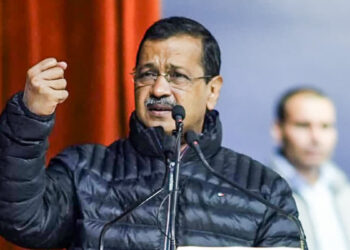Chennai, Tamil Nadu, July 14, 2025 – Tamil Nadu, a southern state in India, has made significant strides in reducing HIV infections over the past decade, but challenges remain, particularly within the LGBTQ community. While the state’s overall HIV prevalence has dropped, specific groups like men who have sex with men (MSM) and transgender women face higher risks, contributing to localized infection rates.
A Decade of Progress
Tamil Nadu has seen its HIV prevalence fall from 0.83% in 2003 to just 0.16% in 2024, according to the Tamil Nadu State AIDS Control Society (TANSACS). New infections have also declined, from 25,572 cases in 2009 to 10,321 in 2019. The state’s robust network of 74 antiretroviral therapy (ART) centers and over 3,000 testing sites has provided free treatment to 1.32 lakh people living with HIV (PLHIV) as of 2024. Programs targeting mother-to-child transmission have been particularly successful, with prevalence among pregnant women dropping to 0.18% by 2020.
Rising Concerns
Despite this progress, new HIV cases have risen slightly since 2020, reaching an estimated 11,000 in 2023. Youth, especially those aged 20–25, and older adults over 60 have seen increases in infections. The reasons include reduced focus on prevention campaigns, migration, and risky behaviors linked to dating apps and social media.
LGBTQ Communities at Higher Risk
The LGBTQ community, particularly MSM and transgender women, faces a disproportionate burden. HIV prevalence among MSM in Tamil Nadu is estimated at 4.2%–9.1%, and among transgender women, it ranges from 7.5%–11.2%, far higher than the state’s average. Social stigma, limited healthcare access, and economic pressures like sex work contribute to these rates. For example, many transgender women in Chennai engage in sex work, where inconsistent condom use increases HIV transmission risks.
Stigma also prevents many in the LGBTQ community from seeking testing or treatment. “Fear of judgment keeps people away from clinics,” says a counselor at Sahodaran, an NGO supporting MSM and transgender health in Chennai. Rural areas, where awareness and services are limited, face additional challenges.
Targeted Efforts and Gaps
Tamil Nadu has taken steps to address these issues. TANSACS runs peer-led outreach programs, distributes free condoms, and offers counseling for MSM and transgender women. NGOs like SAATHII provide vital support, connecting people to ART centers. The 2018 decriminalization of same-sex relations in India has helped reduce barriers to care, but stigma persists.
However, funding for LGBTQ-specific programs is inconsistent, and rural outreach remains weak. Data on other LGBTQ groups, such as lesbian and bisexual women, is also limited, making it harder to address their needs.
Looking Ahead
While the LGBTQ community contributes to HIV infections in Tamil Nadu, their overall impact on the state’s epidemic is small compared to broader factors like migration and reduced prevention efforts. To sustain progress, experts call for stronger awareness campaigns, better rural healthcare access, and targeted support for vulnerable groups.
“Tamil Nadu has shown the world how to fight HIV, but we must keep pushing,” says a TANSACS official. “No one should be left behind.” With renewed focus, the state aims to meet global targets to end AIDS as a public health threat by 2030.
For more information, visit TANSACS or NACO websites.





































